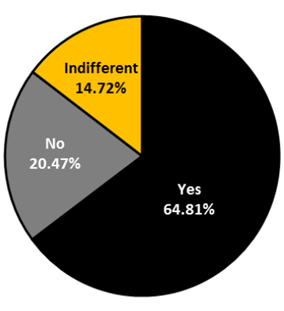» View the Wichita State University Tobacco Policy
About Tobacco Free Wu & Me
 Tobacco Free Wu & Me is a group of Wichita State University students, who worked closely
with faculty, administrators, and staff to ensure a healthy, safe, and sustainable
future for all Shockers by championing a tobacco-free campus policy.
Tobacco Free Wu & Me is a group of Wichita State University students, who worked closely
with faculty, administrators, and staff to ensure a healthy, safe, and sustainable
future for all Shockers by championing a tobacco-free campus policy.
Our goal was to eliminate the use of any tobacco product, including cigarettes, cigars, smokeless tobacco, hookahs, and electronic cigarettes. This policy supports those in our campus community, who are trying to quit tobacco and also helps prevent young adults from becoming tobacco users. A tobacco-free policy sends a clear message that the school values the health of all students, faculty, staff, and visitors.
Is There Support at WSU for a Tobacco Free Policy?

Surveys show that college students and employees prefer tobacco-free campuses. Going tobacco-free not only protects our campus community from secondhand smoke and reduces maintenance costs and fire risks, it also can create a marketing and recruiting advantage.
How Can Tobacco Free Policies Improve the Lives of Shockers?
Tobacco-free policies will save maintenance costs
Tobacco use on campuses consumes valuable staff time picking up cigarette butts,
emptying ashtrays and handling complaints about secondhand smoke. Unlike having designated
smoking areas, going completely tobacco-free doesn't just move the problem; it eliminates
it entirely.
Tobacco-free policies reduce the risk of fires on campus
Careless smokers start fires by dropping cigarettes in planting areas, bark mulch
and trash receptacles. Going tobacco-free eliminates this risk and associated costs,
and may decrease fire and property insurance premiums.
Tobacco-free policies support ADA accessibility
The Americans with Disabilities Act (ADA) requires colleges to maintain accessible
campuses, including reasonable accommodation for students or employees with medical
conditions such as asthma that are triggered by secondhand smoke.
Tobacco-free policies protect students, employees and visitors from exposure to secondhand
smoke
One in five college students surveyed say they experience immediate health effects
from secondhand smoke on campus. For students or staff with asthma, this exposure
can aggravate their condition to the point of requiring an emergency room visit. By
going tobacco-free Wichita State University can proactively address liability risk
associated with exposure to a known health hazard on its premises.
Tobacco-free policies advance sustainability
Universities and colleges today are embracing sustainability and integrating this
concept into campus operations. Tobacco-free campuses yield social, economic and environmental
benefits for the university. Going tobacco-free is a concrete step to reduce the environmental
impacts associated with tobacco use.
Tobacco-free policies support professional development Workplaces are increasingly
tobacco-free:
Worksites are increasingly tobacco-free and Shocker leaders must invest in promoting
academic achievement while also in developing lifelong skills that prepare students
to succeed. In growing numbers nationwide, worksites, school grounds, and health care,
recreation and transportation facilities are 100 percent smoke-free or tobacco-free.
A tobacco-free campus helps Shockers prepare for the workplace.
Adapted from http://tobaccofreecampus.org/sites/default/files/resources/Oregon%20Guide.pdf


